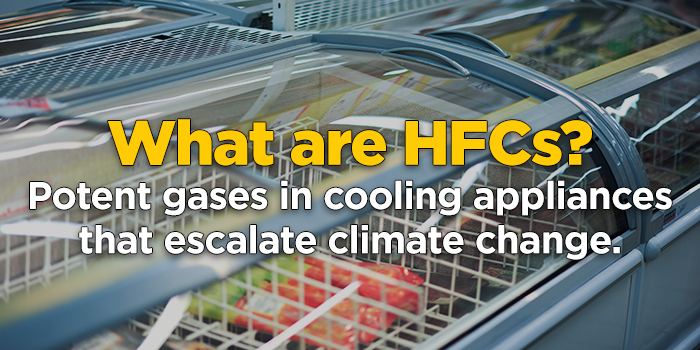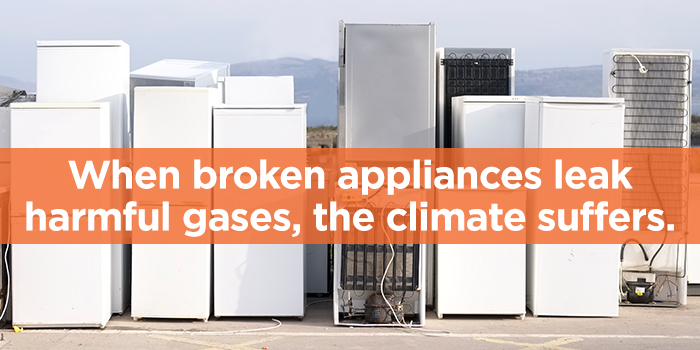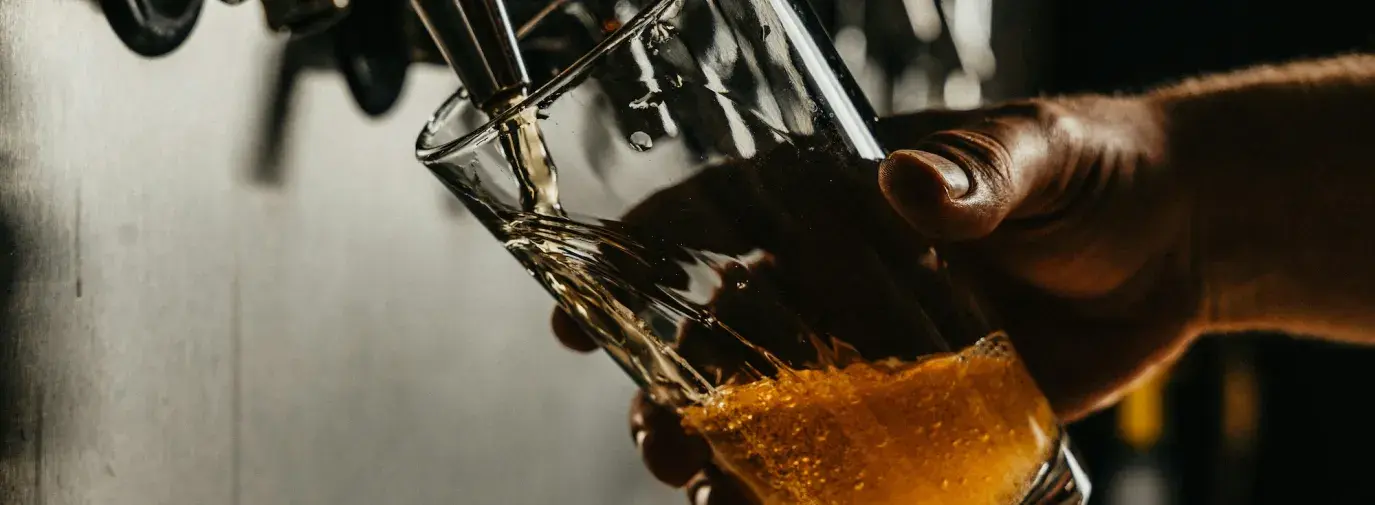
Cool It for Climate
Urge supermarkets to cut super pollutants that accelerate the climate crisis.

Urge supermarkets to cut super pollutants that accelerate the climate crisis.
Appliances we use to keep cool are leaking gases that warm our atmosphere at a shocking rate.
Refrigerators and air conditioning units humming along are easy to overlook...but substances called refrigerants that are used in these appliances to keep things cool are melting the ice caps.
Refrigerants transform from liquid to gas and back continually as they cycle through coils in appliances, absorbing heat and promoting cooling. The most common refrigerants are greenhouse gases called hydrofluorocarbons (HFCs), which are intensifying the climate crisis.

These harmful, human-made gases are leaking out of refrigeration systems and rapidly entering our atmosphere. As we do the crucial work of cutting CO2 emissions, we must also address dangerous, extremely potent HFCs.
Eliminating HFCs and adopting climate-friendly refrigerants is a top solution to address the climate crisis that can prevent nearly half a degree of global warming. Better cooling can help prevent 460 billion tons of greenhouse gas emissions in the coming years.
Supermarkets use a lot of energy, and up to 60 percent is used for cooling and heating systems. But the largest climate impacts come from the refrigerants themselves.
A typical supermarket consumes 4,000 pounds of refrigerants each year with a quarter leaking out due to faulty systems.
Refrigerant leaks from US supermarkets emit 45 million metric tons of greenhouse gases every year (the equivalent of 9.5 million cars on the road).
To address this issue, companies must commit to:

Campaign Update: Kroger said that it would address the issue in its latest Greenhouse Gas Emission Reduction Road Map which came out in January of 2023. Well, let’s just say the road doesn’t go very far. In fact, its own projections show HFC emissions going up before plateauing in 2025 onward. Not going down. Kroger must do better.
Kroger is the largest grocery chain in the US and is failing to take action on HFCs. HFCs account for a staggering 63% of Kroger’s direct climate emissions, but Kroger is only committing to install non-HFC refrigerants in 7 out of their 2,800 stores.
In June 2022, 35 percent of Kroger’s shareholders voted to encourage the company to take action on refrigerants. Join Green America in showing Kroger that customers also want the grocery giant to act fast.
Walmart’s annual HFC emissions are over three million metric tons, or the energy equivalent of powering all the households in San Francisco.
Walmart has failed to honor past agreements to address HFCs, even though they make up nearly half of the company’s total direct emissions.
Over 100,000 people joined us to demand that Walmart eliminate its highly potent refrigerant emissions, and Walmart finally announced that it will transition to “low-impact” refrigerants by 2040.
But two decades is too long to wait when communities are facing devastation from the climate crisis today.
Trader Joe’s has a bad record of emitting refrigerant gases that hurt the climate and the ozone. It received the lowest score on EIA’s Climate-Friendly Supermarket Scorecard, which assessed the company on its insufficient action to reduce the use and emission of HFCs.
Additionally, Trader Joe's doesn't publicly report its climate emissions or social responsibility practices, as many other large companies do to show progress towards commitments.
Green America and Environmental Investigation Agency have teamed up to hold Trader Joe's accountable for its poor climate and labor practices and lack of transparency.
While most supermarkets are lagging way behind, a few supermarkets have made progress in tackling HFCs. You can show your support by shopping at these stores and thanking them for taking action on HFCs.
Find a Climate-friendly Supermarket

Major beer companies, including Anheuser-Busch, are using harmful pesticides like glyphosate and 2,4-D in their barley and hops. These chemicals threaten human health, devastate pollinator populations, and contaminate our water systems.
We’re calling on The Children’s Place, Carter’s, and H&M to take the next step in sustainability by committing to reduce their use of polyester.
A resource for beginners: Take charge of your finances in four areas - banking, credit cards, property insurance, and investing.
Green America is pushing Artificial Intelligence (AI) companies to use renewable energy so communities aren’t polluted and climate change isn’t made worse by fossil fuels they plan to use.

Originally published in Cincinnati Enquirer on July 31, 2024
You won’t notice it the next time you go grocery shopping, but changes are happening in refrigerated aisles nationwide. Several major American supermarket chains are starting…
Walmart stores are leaking potent greenhouse gases that accelerate the climate crisis.
These gases are called HFCs and they have thousands of times the warming power of carbon dioxide. HFCs are…
Supermarkets like Trader Joe's are leaking potent greenhouse gases called HFCs and it’s a huge climate problem.
In fact, refrigerant leaks from U.S. supermarkets are the…